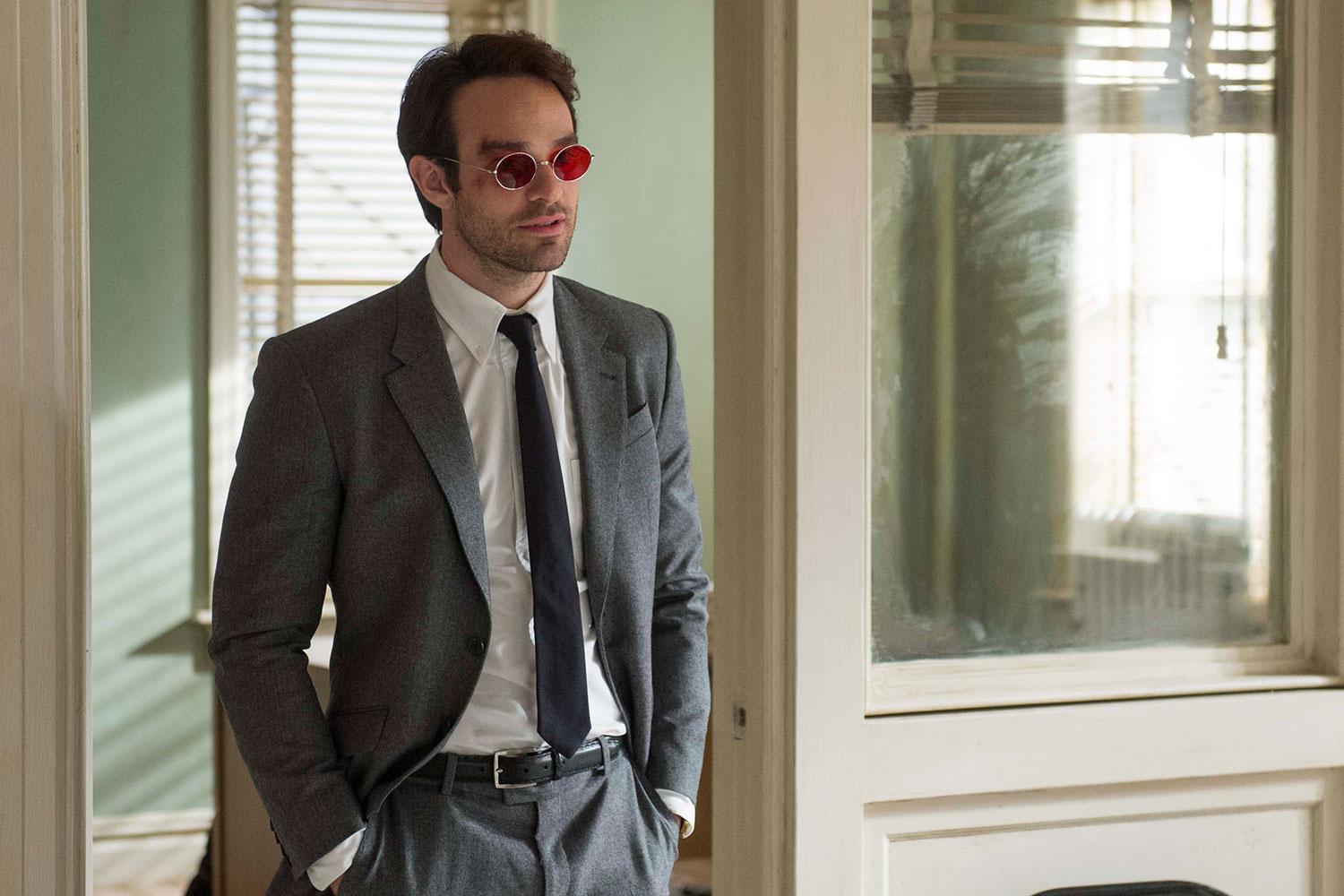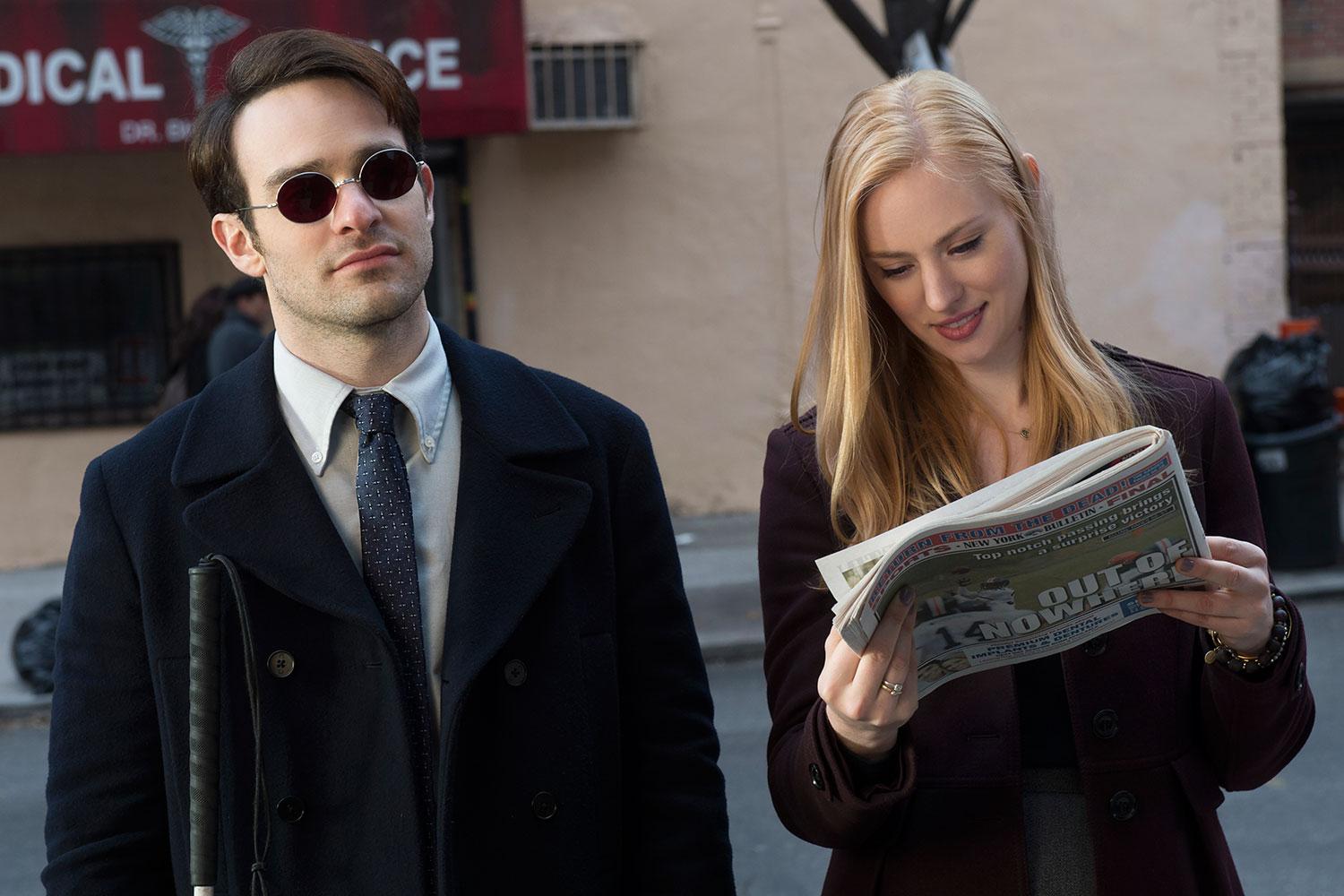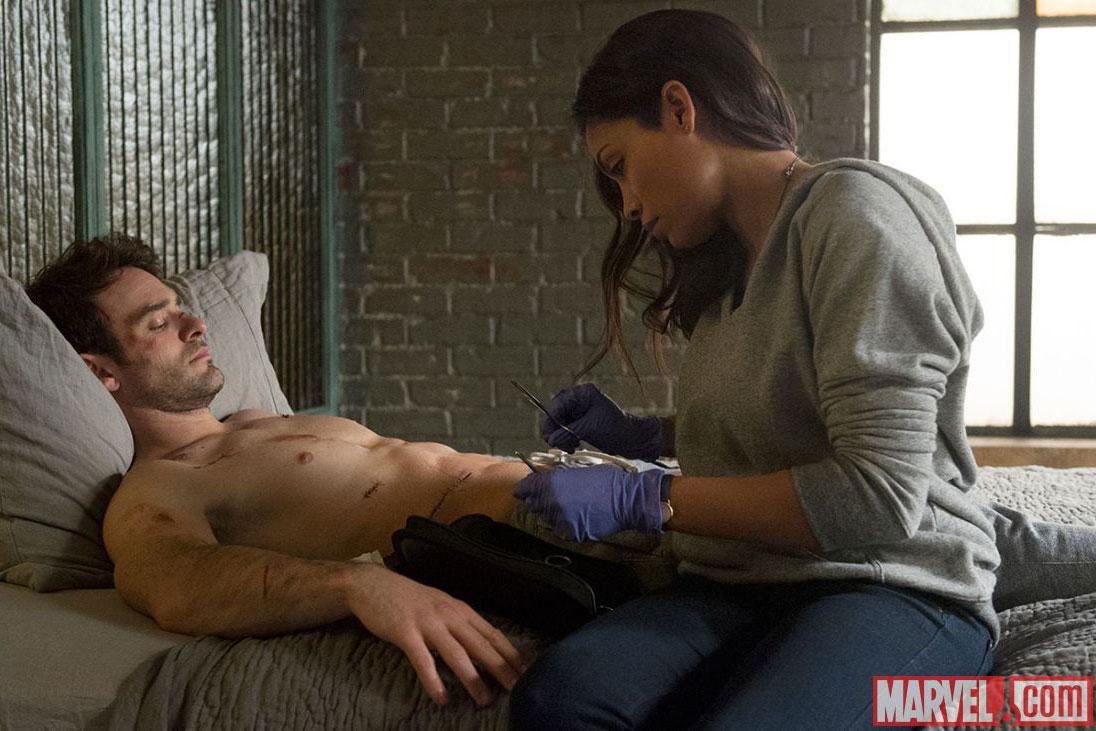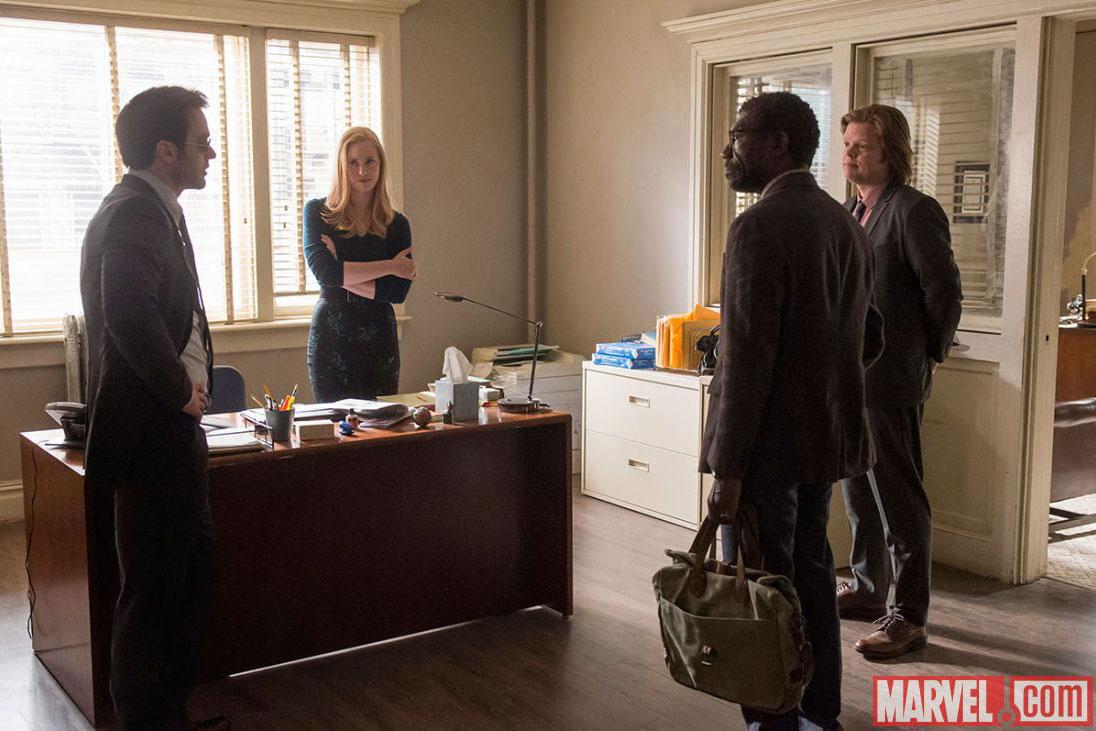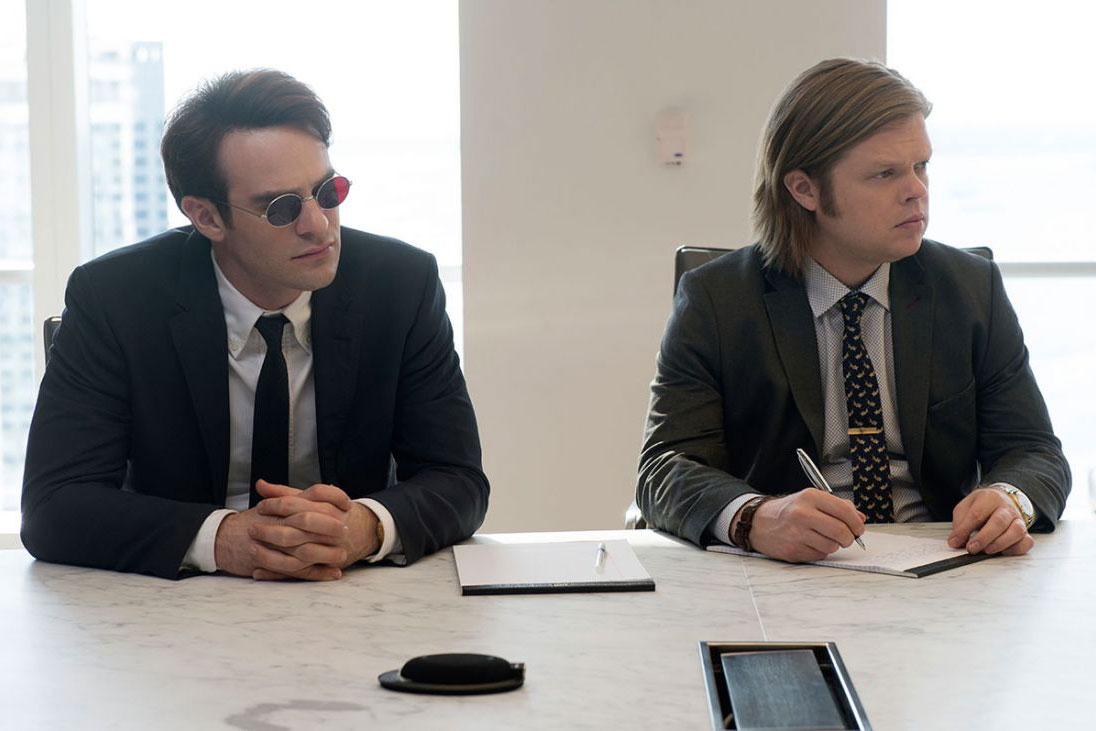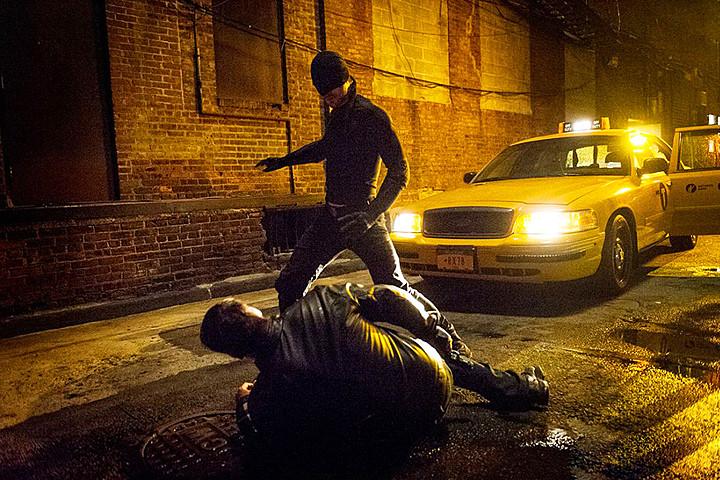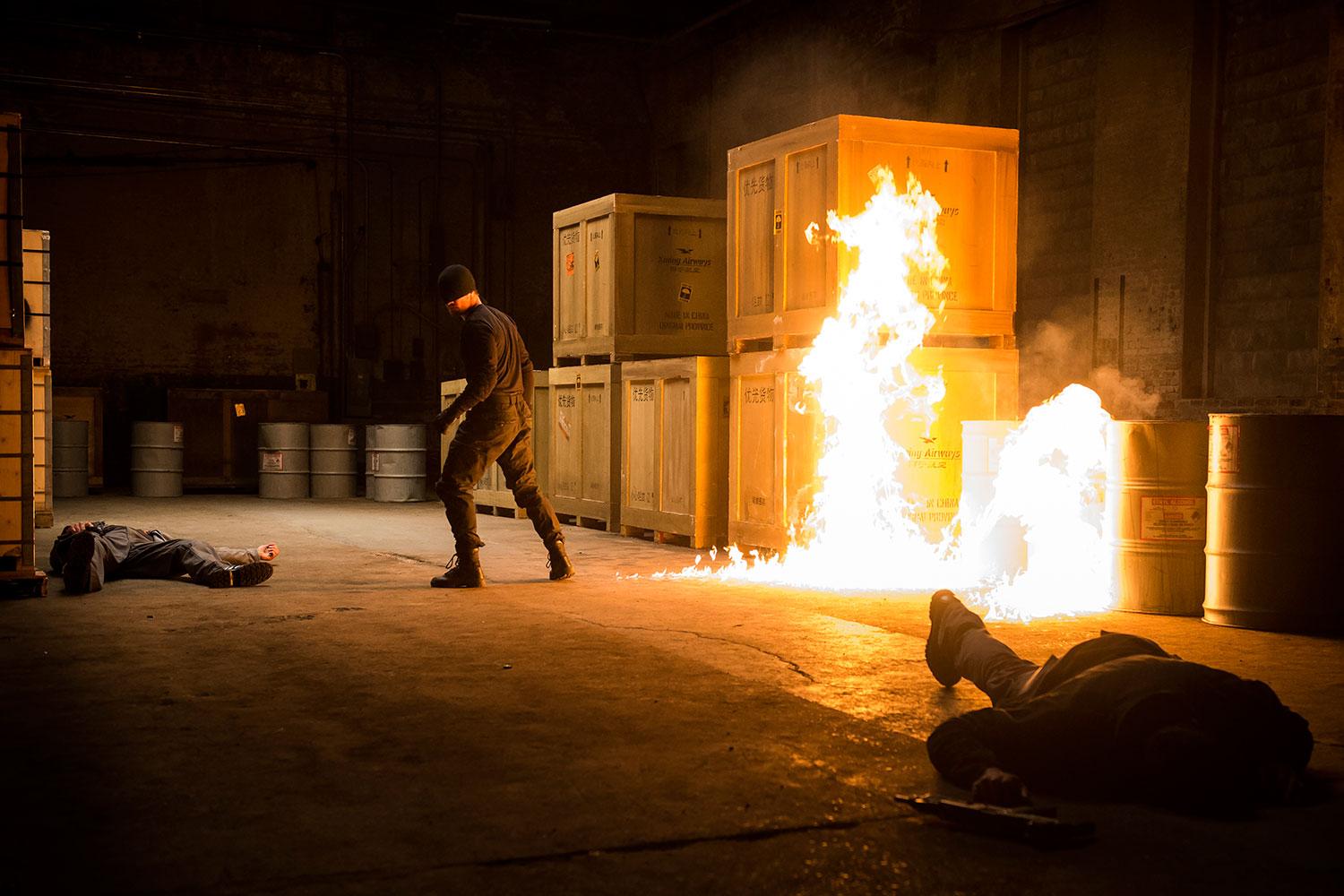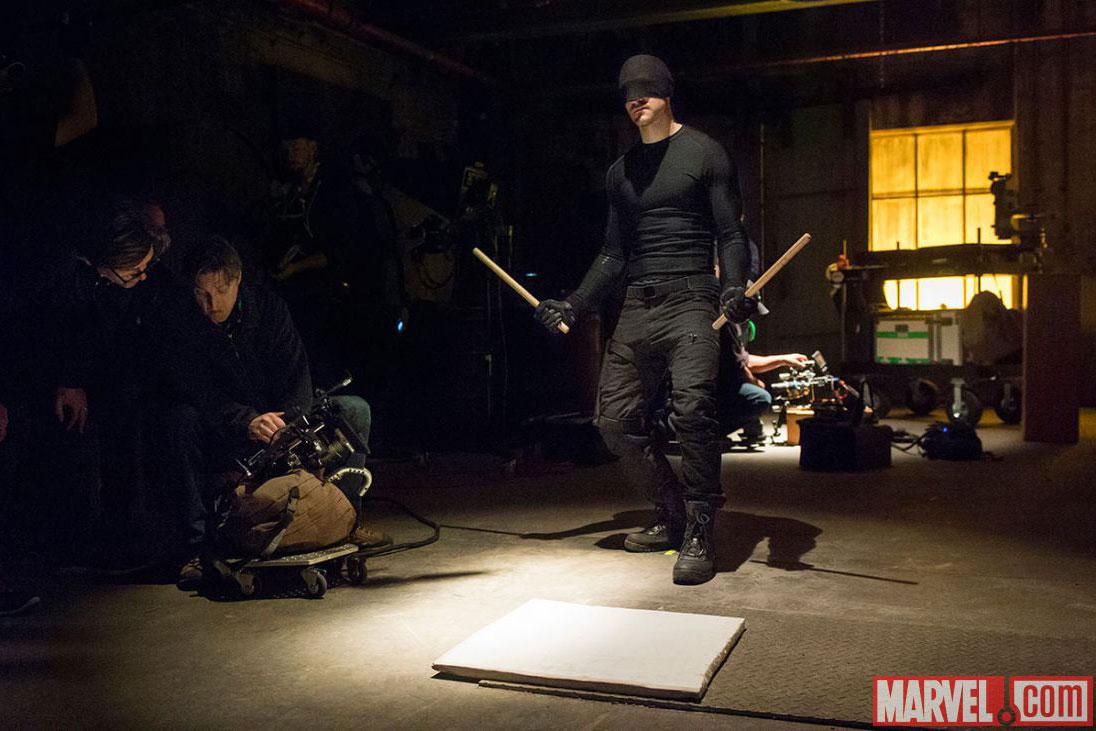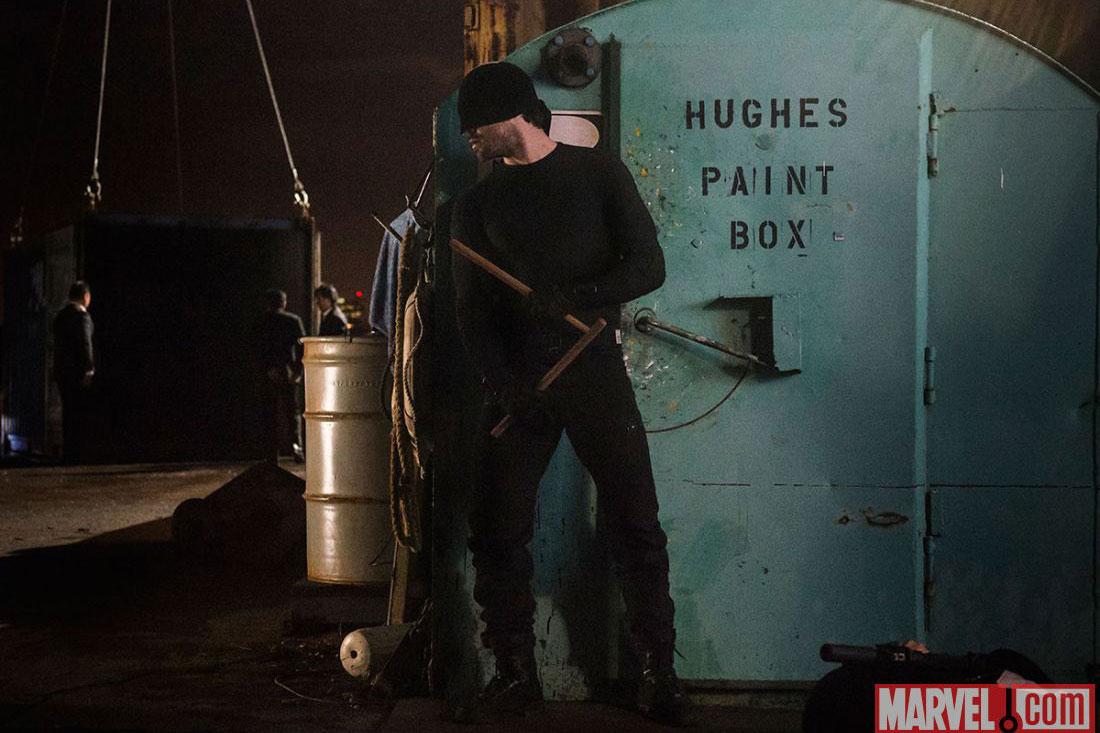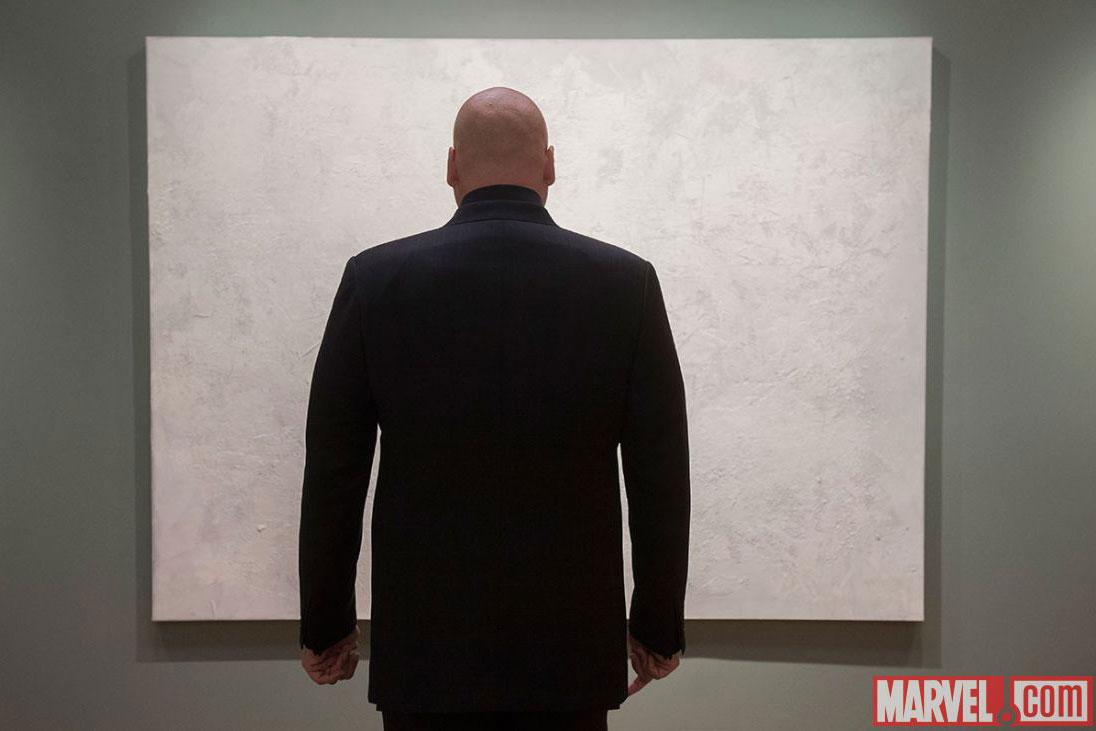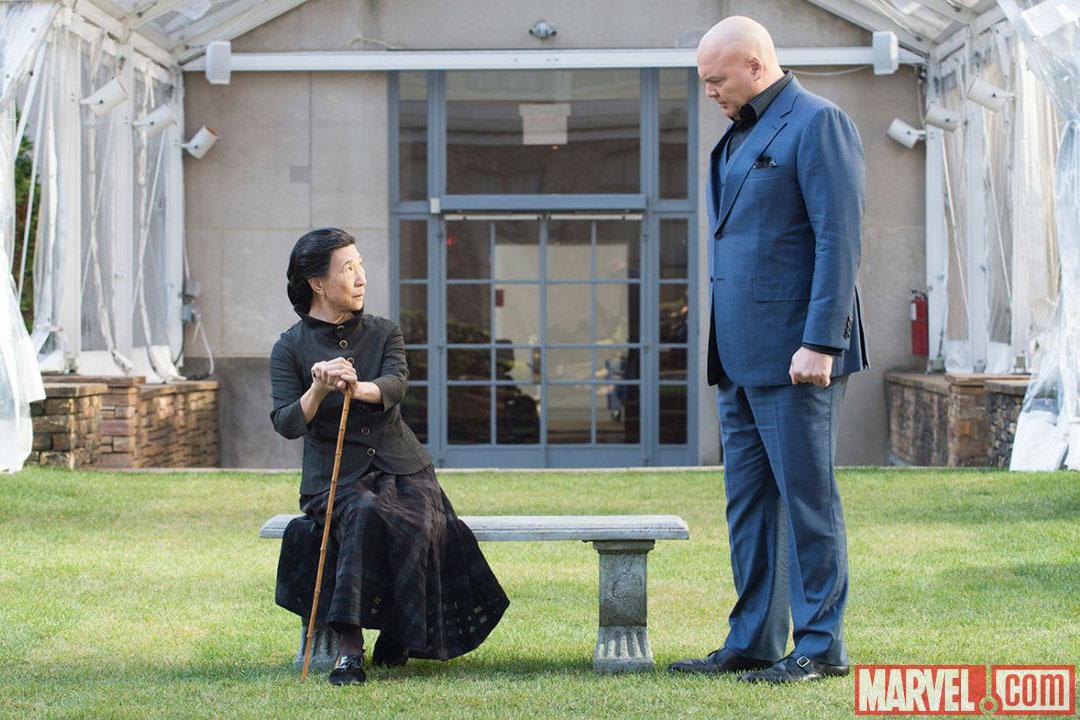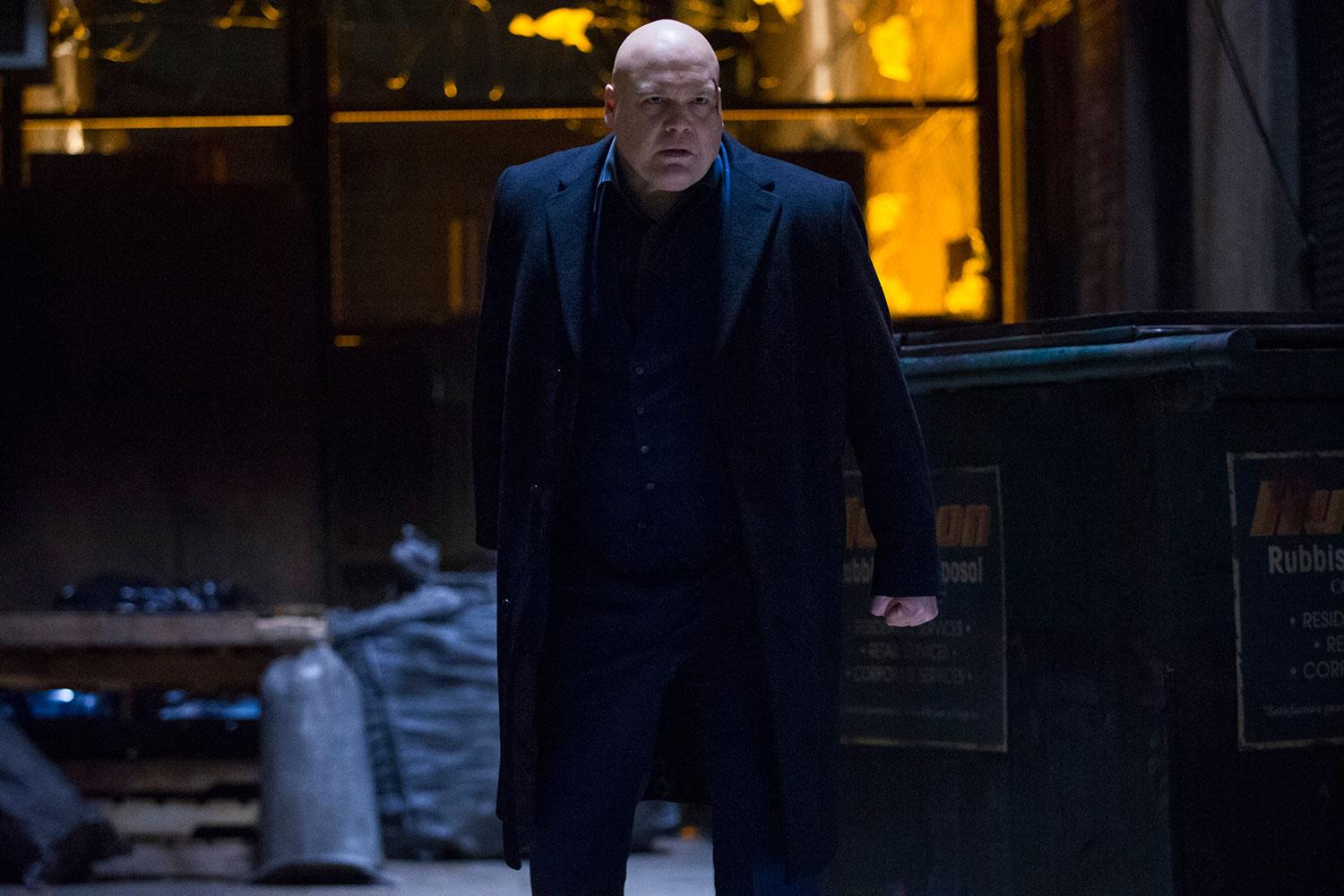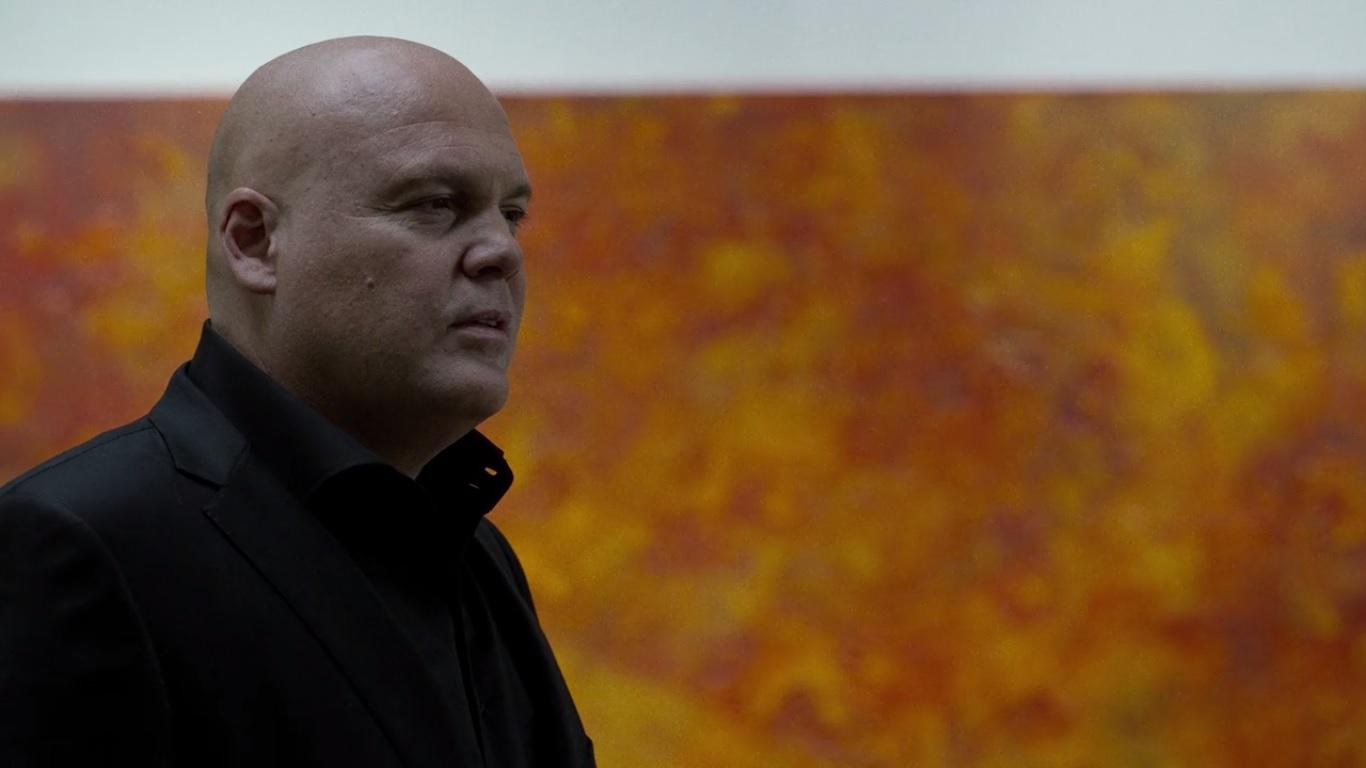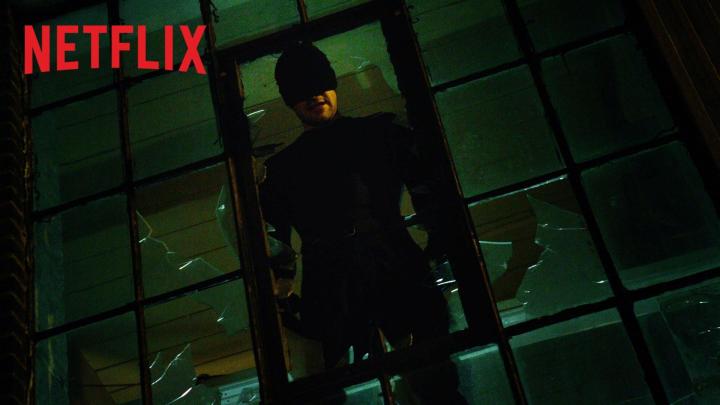
That’s why Daredevil — a joint production of Marvel and Netflix — is such a surprising project.
Given the success Marvel has had with capturing the elusive “all-ages” audience, it’s hard not to wonder why they would go all-in on the older crowd with a brutal, bloody series that breaks from the Marvel mold – but maybe that, in fact, is the reason they endeavored to create the series. Over the course of 13 episodes, Daredevil makes a strong case for itself as just the sort of compelling, dramatic live-action superhero series that changes the game for superhero stories on television—in much the same way Marvel’s cinematic universe did for big-screen superhero sagas.
Created for Netflix by The Cabin in the Woods director Drew Goddard and shepherded to the screen by Spartacus creator Steven S. DeKnight, Daredevil casts Stardust star Charlie Cox as Matt Murdock, a man who lost his sight at a young age but gained superhuman senses that allow him to “see” the world by means far beyond what the rest of us perceive with all five of our senses. An idealistic attorney by day, Murdock wages a one-man war against criminals as a masked vigilante by night in the neighborhood of Hell’s Kitchen, who’s able to both dish out and absorb a cringe-worthy amount of punishment.
Cox is joined in the cast by Elden Henson as Murdock’s best friend and law partner, Foggy Nelson, as well as by Vincent D’Onofrio as Wilson Fisk, the powerful kingpin of crime who is as powerful as he is brilliant in his ruthless quest to make the city his personal empire. Deborah Ann Woll, Rosario Dawson, Toby Leonard Moore, and Ayelet Zurer round out the cast of notable, featured players in the gritty drama that brings Marvel’s cinematic universe down to street level.
Daredevil feels infinitely bigger than its premise.
In many ways, Daredevil is as much a product of a television landscape shaped by slow-burn series like Breaking Bad and Game of Thrones as it is a product of Marvel’s carefully managed superhero ecosystem. From its early episodes that throw you headlong into the tragedies that spawned its titular hero to its dramatic, violent finale and the culmination of all the lies, deaths, and punches to the gut (both physical and emotional) that have led up to that point, Daredevil feels infinitely bigger than its premise and intimately (and occasionally uncomfortably) close to its characters.
Where much of Marvel’s movie-verse is populated by heroes and villains with a remarkable ability to look clean, calm, and coiffed after saving the world for the umpteenth time, Matt Murdock exists in a world of endless bruises, cuts, and broken bones. Villains and heroes alike rarely escape a fight unscathed, and the level of blood and graphic violence that peppers the series serves as a reminder of the cost one pays for dabbling in this world when you don’t have an armored suit or magic hammer.
And much as he did with Spartacus, DeKnight has clearly given the action sequences in Daredevil a tremendous amount of attention that becomes apparent every time Matt Murdock dons his mask.
Perhaps the best example of his action savvy is a sequence in the second episode of the series that draws all the right comparisons to director Chan-wook Park’s iconic, single-take hallway fight scene in Oldboy. The scene features Murdock taking down a building filled with Russian thugs in much the same, unapologetically exhausting, and entirely un-graceful manner as Park’s protagonist in that memorable scene, attacking and countering one enemy after another, pausing to catch his breath whenever possible and taking nearly as many hits as he delivers.
Cox’s grasp of the action elements of Daredevil is a pleasant surprise
Given how little we’ve seen of that side of Cox in his previous roles, his grasp of the action elements of Daredevil is a pleasant surprise, and one that’s matched by how well he handles the flip side of Matt Murdock’s identity.
The man known as Daredevil has always been a walking contradiction of sorts in the world of Marvel’s comics – a man who somehow manages to rationalize his daytime activities and convictions (both religious and philosophical) with the violent life he lives while wearing a mask. Cox does a fine job of bringing that inner turmoil just close enough to the surface to make the audience recognize it for what it is but keep the cast of characters around Matt Murdock believably unaware.
Still, in much the same way Tom Hiddleston’s Loki stole the spotlight in 2011’s Thor, Vincent D’Onofrio quickly establishes his complicated criminal mastermind, Wilson Fisk, as the character most deserving of your attention in Daredevil – even when he shares the screen with the titular character. D’Onofrio offers up an impressively nuanced performance as his character’s story is expanded across the series’ timeline – propelled forward by the events unfolding in the current time while accounting for the influence of everything that shaped him into the simmering threat he’s become.
Like Hiddleston and Loki, D’Onofrio truly makes Wilson Fisk his own, and you can’t help hoping his character will fill a similar, recurring role in Marvel’s ever-expanding universe.
Beyond its featured roles, Daredevil also benefits from a strong supporting cast that never detracts from the story and a script that – possibly owing to the series’ relatively short length – wastes little energy in exploring extraneous threads. Unlike many series with the luxury of longer seasons and expectations that fall a little shy of what we’ve come to expect from something sporting the “Marvel” logo, Daredevil is a model of efficiency with the story it seeks to tell. (To that end, it could offer a lesson or two to Marvel’s other television series, Agents of S.H.I.E.L.D., which often feels a a bit padded-out.)
It’s difficult to identify exactly where Daredevil shifts from what you expect in a television series that unfolds within Marvel’s cinematic universe to something else entirely. While it’s easy to point to some of the gruesome, blood-spattered sequences in the early episodes as confirmation that this is a far cry from the all-ages adventures we’ve come to expect from Marvel, the series asserts itself as something new tonally – and more importantly, emotionally – well before heads begin rolling.
In fact, of all the great things the series accomplishes with memorable storytelling, impressive choreography, and various other elements fans have been fawning over, the series’ greatest accomplishment may be in never feeling limited by what’s expected of a series about a blind attorney who moonlights as a masked vigilante.
